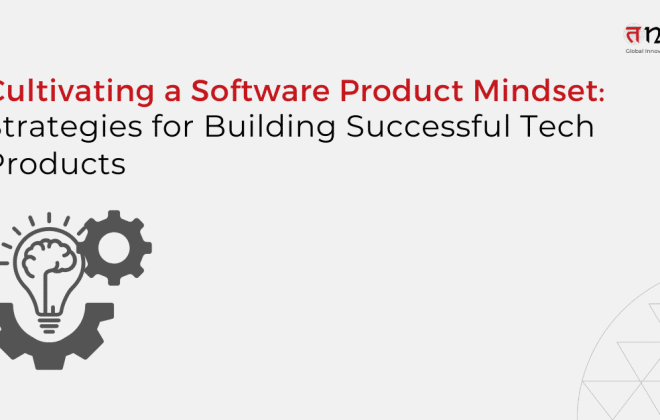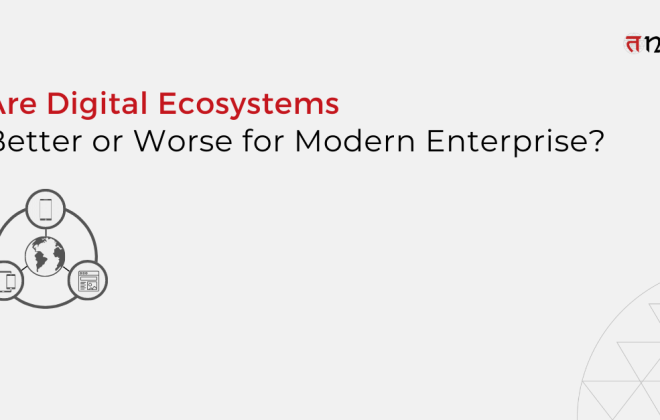
How Managed Services Can Accelerate Core Business Functions?
Table of Contents
ToggleAs the digital world continues evolving and more customers interact with online services, businesses understand that they must improve their knowledge of technology. Many IT teams find it difficult to keep up with rapid technological advancements like AI, cloud computing, and RPA. This is addressed by the growing trend of businesses adopting managed services, which enable them to optimize processes and adjust to changing technology requirements.
eCommerce is expected to continue to grow, and online businesses will become more prevalent. This will increase rivalry amongst digital businesses that want to succeed. An increasing number of consumers are making purchases online, and unprepared merchants often lose out on chances, giving customers a poor experience.
It becomes imperative in this context to prioritize having good digital infrastructure. For instance, during the pandemic, companies using a cloud-based managed services approach found it simple to quickly scale up their operations to meet unexpected spikes in demand, which relieved any related stress.
Trusted managed services provider AWS provides online businesses with all the technology they require to handle expansion quickly. Retailers can consistently deliver excellent customer experiences and take advantage of expansion prospects with the help of technologies like autonomous scaling of compute resources, networking, storage, content distribution, and a PCI-compliant environment.
The utility and success of AWS are evident from Rent-a-Centre’s example. AWS is used by Rent-a-Center, a well-known US rent-to-own company with 3,000 locations, to run SAP Hybris. This configuration provides a flexible and available solution that can scale to 1,000% without requiring further server purchases. Rent-a-Center saves money and gains speed using Amazon Aurora’s relational database engine, and Amazon CloudFront handles worldwide content distribution. Rent-a-Center’s e-commerce business was able to grow dramatically as a result of this comprehensive solution.
In another example, Motorola opted for an eCommerce platform through AWS designed specifically for the cloud. With the aim of global direct-to-consumer (DTC) sales, Motorola collaborated with AWS Advanced Technology Partner VTEX to launch websites across 37 countries. These websites operate on a modern microservices architecture within the AWS Cloud. Motorola now efficiently services both B2B and DTC channels, experiencing a combined 25% boost in conversion rates across the newly launched sites.
Source – Amazon
Evolving Landscape of Managed Services: Insights and Projections
The market for managed services was valued at USD 239.71 billion in 2021 and is expected to grow at a Compound Annual Growth Rate (CAGR) of 13.8% from 2021 to USD 680.08 billion by 2030. Organizations are progressively collaborating with Managed Services experts to benefit from various services, including cloud, database, DevOps, security, network, communication, IoT, and other solutions.
Around 60% of firms worldwide store their data on cloud platforms, indicating a notable move towards cloud-based repositories. 90% of big organizations have adopted a multi-cloud infrastructure, utilizing several cloud platforms for their operations, demonstrating the flexibility and dependability of cloud solutions. Furthermore, the widespread use of cloud infrastructure services generates significant revenue, reaching a whopping $178 billion yearly.
A 2022 Cybersecurity benchmarking study by ThoughtLab titled “Cybersecurity Solutions for a Riskier World” revealed that 29% of CEOs and CISOs and a startling 40% of Chief Security Officers believe their companies are not effectively equipped for the rapidly changing cyber threat scenario.
Meanwhile, 69% of the organizations surveyed in the PwC 2022 Global Digital Trust Insights Survey expected a rise in cybersecurity spending. But improving security doesn’t only mean spending more money but also making better use of the available resources. Consequently, working with managed service providers to solve security demands is essential.
Driven by the escalating demand for cybersecurity services, the global market size for cyber security managed services, valued at USD 14.48 billion in 2022, is forecasted to surge from USD 15.78 billion in 2023 to an estimated USD 32.68 billion by 2030. This growth projection indicates an impressive Compound Annual Growth Rate (CAGR) of 11.0% throughout the forecast period.
Similarly, other digital transformation managed services, such as DevOps, are expected to reach USD 25.5 billion by 2028. DevOps helps businesses reduce the time spent on handling support cases by 60% – this is an excellent outlook for organizations seeking to adopt DevOps in the future. At the same time, with a predicted CAGR of 11.5% from 2023 to 2030, the managed network services market is expected to grow from US$ 60.9 billion in 2022 to US$ 143.4 billion by 2030. According to a recent Deloitte survey, 57% of businesses saw cost savings as a major advantage of outsourcing their network services job.
Embracing Managed Services Model: Enhancing Technological Capabilities
Businesses understand that they must improve their technology capabilities as more and more clients turn to online services. While innovations like robotic process automation (RPA), cloud infrastructure, machine learning, and Generative AI grow, many IT teams possess foundational skills but struggle to keep pace with emerging advancements.
Therefore, there is a growing trend toward the adoption of a Managed Services approach by businesses to address their evolving technological needs as technology becomes more established. There are many software product engineering solutions companies that can help you with their managed service expertise. But first, let us look at how adopting managed services can benefit your core business capabilities –
To meet the changing needs as technology gets more established, organizations are increasingly adopting a managed services approach. Numerous software product engineering solutions providers can assist you with their knowledge of managed services. However, let’s first examine how implementing managed services might enhance your primary business competencies.
- Better Risk Management
Increasing demands for compliance and audits make it difficult for enterprises to manage changing cybersecurity risks. Utilizing managed IT services makes risk mitigation more effective and timely. Thanks to proactive and automated network monitoring, data breaches, and possible ransomware attacks are detected early on.
- Enhanced Operational Efficiency
By using managed services, you may handle complex IT infrastructures with the help of modern technologies and trained personnel. The management and monitoring of networks and systems are made easier by this accessibility. It also embraces cloud-based data management and storage approaches, enabling proactive threat identification and prevention.
- Keeping Pace with Modern Technologies
To stay up with current technological developments, a managed services partner like Tntra is valuable. Managing service companies can accelerate your cloud transformation by giving you access to the newest resources, tools, and technology. You can concentrate all of your attention on satisfying the demands of your customers and business as they change while your partner helps you take advantage of new digital innovations.
- 24/7 Support
Internal IT teams often face the problem of maintaining and administering their IT infrastructures around the clock. Prioritizing corporate demands while maintaining flawless operations is challenging when managing several, occasionally conflicting, duties. Managed Services eases this burden by providing constant, round-the-clock assistance for their core IT infrastructures. This provision ensures that internal teams are relieved of concerns regarding critical service coverage and the meticulous maintenance of standards, processes, and reporting protocols.
- Network and Communication Support
Managed services use and uphold industry-leading standards to enable strong network security adherence. Using experts guarantees adherence to strict security guidelines such as ISO 27001, NIST, or CIS benchmarks. This method strengthens networks by adhering to encryption standards, providing regular updates, and conducting thorough threat monitoring. Businesses establish a smooth communication infrastructure by delegating these crucial responsibilities to experts. This allows internal teams to concentrate on strategic goals while maintaining network security and dependability.
Conclusion
In an era where technology evolution shapes business landscapes, partnering with a Managed Services partner is crucial. Organizations seek to enhance their core capabilities amidst burgeoning digital transformations. Managed services unlock numerous benefits—enabling better risk management, bolstering operational efficiency, and empowering businesses to stay abreast of modern technologies. As companies strive to optimize resources and focus on their core strengths, the adoption of digital transformation managed services emerges as a pivotal strategy for sustainable growth.
Explore the benefits of Managed Service with Tntra, a leading IP-led software product engineering company. Enable reliable IT-managed service delivery, benefit from improved ROI, and grow business operations.





